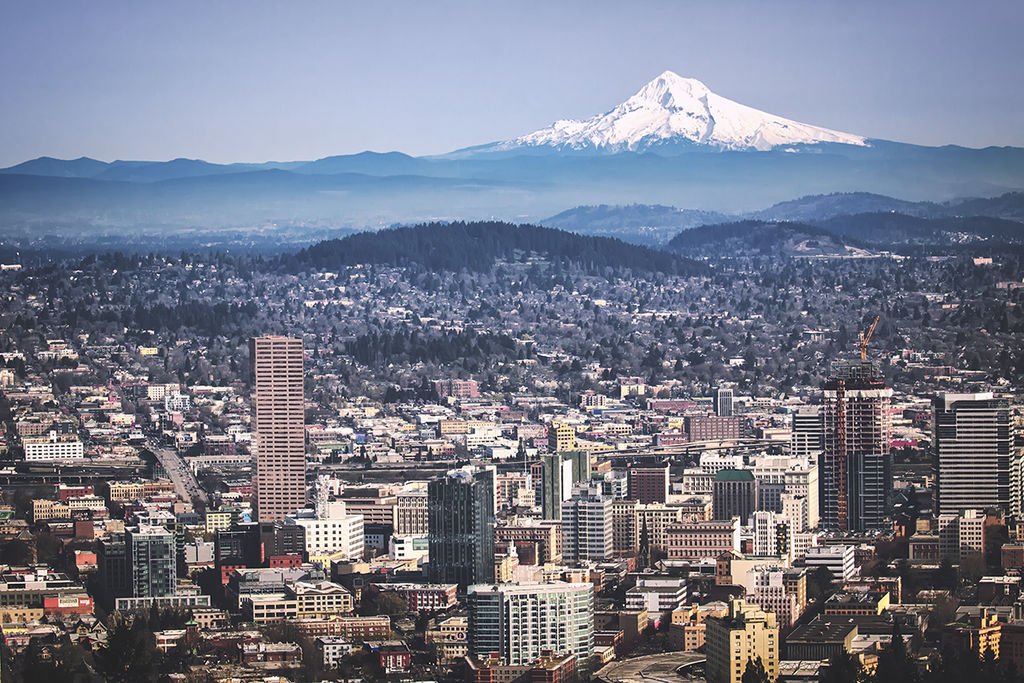Oregon courts let Portland ban on fossil fuel infrastructure stand. For now.
In late 2016, the Portland, Oregon City Council unanimously approved two resolutions protecting residents from fossil fuel projects. They banned construction or expansion of infrastructure to transport or store fossil fuels in the city; and they voted to oppose rail projects planned to carry crude oil through the cities of Portland, Oregon and Vancouver, Washington. Subsequently, Oregon’s Land Use Board of Appeals (LUBA) heard an appeal of these actions led by the Columbia Pacific Building Trades Council, Portland Business Alliance and Western States Petroleum Association.
A winding road through Oregon’s appeals process
LUBA ruled in July 2017 that the Portland City Council resolutions violate the Commerce Clause of the U.S. Constitution. This was one of a number of findings that, in LUBA’s conclusion, invalidated the council’s resolutions in opposition to fossil fuel infrastructure.
But in January 2018, LUBA’s finding that Portland had violated the Commerce Clause was overturned by Oregon’s Court of Appeals.
Earlier this month, on August 1, 2018, Oregon’s state Supreme Court declined to review the January decision of the state Court of Appeals, letting stand the finding that Portland did not violate the Commerce Clause.
It seems, then, that Portland’s ordinance is within the city’s scope of authority.
Except it’s not over yet.
An unsettling lack of certainty: what might be next
The Oregon Court of Appeals upheld other elements of LUBA’s ruling even as it overruled LUBA in January by deciding that there was no violation of the U.S. Constitution’s Commerce Clause. Those other elements of LUBA’s ruling will require the Portland City Council to revise its ordinance and pass it again in order for the city’s intended ban to go into effect. Indications are that the city will wait for the appeals process to play out fully before taking up its resolutions for a second time.
The biggest risk to Portland prevailing in its effort to regulate fossil fuel infrastructure is that the buck doesn’t stop at Oregon’s Supreme Court: a petition for review to the U.S. Supreme Court could put Portland’s case on the SCOTUS docket. If it does, the SCOTUS could overrule the Oregon courts’ decisions … in a big way.
How the Portland case could affect Oakland’s coal ban
As explained in NCIO’s comment on Judge Vince Chhabria’s May 2018 decision in OBOT v. City of Oakland, the U.S. District Court decision in the Oakland case ruled only on breach-of-contract claims brought by would-be Oakland coal developer Phil Tagami. By doing so, Judge Chhabria “found it unnecessary to rule on constitutional and preemption claims raised by OBOT.”
But if the case challenging Portland, Oregon’s restrictions on new fossil fuel infrastructure is taken up by United States Supreme Court, SCOTUS justices may decide whether a ban very much like Oakland’s violates the Commerce Clause by unduly interfering with interstate commerce.
Should SCOTUS decide broadly that these types of bans are unconstitutional, Portland’s case could lead to a nationwide throttling of traditional local authority to regulate the health and safety of communities by barring expansion of fossil fuel infrastructure within the borders of cities and states.
In general, local regulations of interstate commerce have been upheld when they are based on health and safety concerns, which was indeed the basis for the Oakland City Council’s ban on storage and handling of coal. A SCOTUS decision that reversed this trend or explicitly prohibited such regulations would drastically inhibit communities from addressing the global climate emergency locally. And it would do so when it is increasingly critical for cities and states to step up and impose this type of regulation.
City and state governments are where communities can insist on effective measures to protect the planet from fast-accelerating disasters at the current, toxic political moment, when the United States government is hellbent on exacerbating the climate emergency, pretending against all credible evidence that it isn’t happening, and reversing measures that have only just begun to reduce and reverse the human activity that drives global warming.
Any case of this type — Portland’s, Oakland’s, or others — that is appealed to the U.S. Supreme Court risks a decision that could gut local authority to protect communities from fossil fuel industry predation. So while NCIO applauds the Oregon Court of Appeals’ ruling that Portland’s regulation does not violate U.S. law — and the Oregon Supreme Court’s decision to let that ruling stand — we remain on tenterhooks as that city’s appeal approaches the perilous shoals of federal review. As Portland’s case goes, so might Oakland’s … and the nation’s.
Featured Photo: Portland, Oregon and Mount Hood viewed from the Pittock Mansion.
Credit: © Steven Pavlov / http://commons.wikimedia.org/wiki/User:Senapa /
